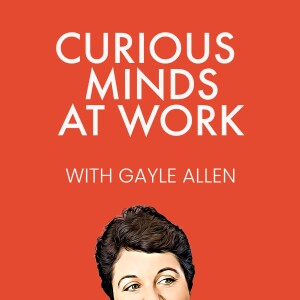
CM 134: Brian Gunia on a Fresh Approach to Negotiation
 2019-05-16
2019-05-16
Download
Right click and do "save link as"
What if we entered negotiations with the goal of benefitting both sides, not just ours?
For many, the word negotiation conjures up images of a heated exchange, of master manipulators, expert wordsmiths, and of winners and losers. Victors earn the spoils by outsmarting opponents and preying on their weaknesses. It’s a daunting picture.
But Brian Gunia, author of the book, The Bartering Mindset: A Mostly Forgotten Framework for Mastering Your Next Negotiation, shows that this mindset is not only short-sighted, but can also be ineffective. He argues that we’d be much more successful – and enjoy the negotiation process more – if we spent as much time thinking of the other person’s needs as our own. He encourages us to “…think about negotiations not as opportunities to fight with the other side about one fixed outcome, like money, but as the opportunity to find issues to trade things with the other side that benefit both of us at the same time.”
Brian is an Associate Professor at Johns Hopkins University’s Carey Business School. His research has been featured in publications like Fast Company, The New York Times, The Wall Street Journal, and The New Yorker. In this interview, he shares his five-step process for applying a bartering mindset to our next negotiation and explains why it works: “…negotiators who spend more time and make more of an effort to figure out what’s going on in the other side’s head, tend to do a lot better.”
The Host
You can learn more about Curious Minds Host and Creator, Gayle Allen, and Producer, Rob Mancabelli, by visiting @CuriousGayle and www.gayleallen.net.
Episode Links
@briangunia
Mindwise by Nicholas Epley
Distributive versus integrative negotiation
Double coincidence of wants
Multiple equivalent simultaneous offers (MESOs) and their benefits
Simple Ways to Support the Podcast
If you enjoy the podcast, there are three simple ways you can support our work. First, subscribe so you’ll never miss an episode. Second, tell a friend or family member. You’ll always have someone to talk to about the interview. Third, rate and review the podcast wherever you subscribe. You’ll be helping listeners find their next podcast.
A Short List of Places Where You Can Find Curious Minds:
Spotify
iTunes
Tunein
Stitcher
Google Play
Overcast
view more
More Episodes
CM 029: Herminia Ibarra on Learning to Lead
 2016-03-28
2016-03-28
 2016-03-28
2016-03-28
CM 028: Cal Newport on Deep Work
 2016-03-21
2016-03-21
 2016-03-21
2016-03-21
CM 027: Bee Wilson on How We Learn to Eat
 2016-03-14
2016-03-14
 2016-03-14
2016-03-14
CM 026: Dan Gardner on Predicting the Future
 2016-03-07
2016-03-07
 2016-03-07
2016-03-07
CM 024: Adam Grant on Being Original
 2016-02-22
2016-02-22
 2016-02-22
2016-02-22
CM 019: Gillian Tett on Breaking Down Silos
 2016-01-18
2016-01-18
 2016-01-18
2016-01-18
012345678910111213141516171819
Create your
podcast in
minutes
- Full-featured podcast site
- Unlimited storage and bandwidth
- Comprehensive podcast stats
- Distribute to Apple Podcasts, Spotify, and more
- Make money with your podcast
It is Free
- Privacy Policy
- Cookie Policy
- Terms of Use
- Consent Preferences
- Copyright © 2015-2024 Podbean.com




